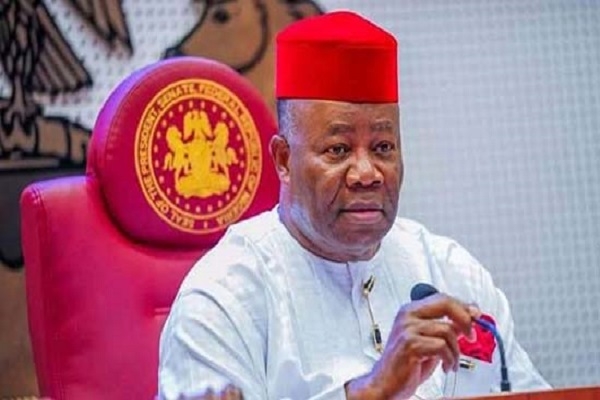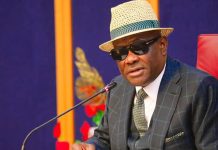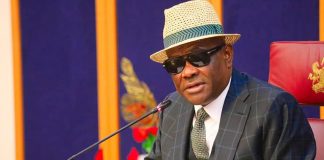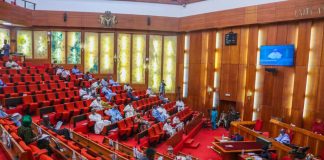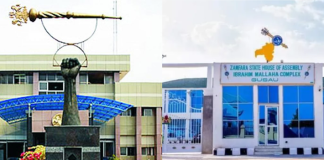🌿 Ruzu Non-Alcoholic Herbal Bitters
Ruzu Non-Alcoholic Herbal Bitters is a natural health supplement specially formulated to:
- ✅ Promote general wellness
- ✅ Detoxify the body
- ✅ Support the treatment of various ailments
Made from a powerful blend of 100% organic and medicinal herbs, Ruzu is completely alcohol-free, making it ideal for:
- 👪 All age groups
- 🌱 Health-conscious individuals
- 🌿 Anyone seeking non-alcoholic herbal remedies
Whether you're looking to boost your vitality, cleanse your system, or support healing the natural way, Ruzu Bitters offers a trusted herbal solution.
The National Assembly would support the adoption of a bill that would require a minimum of 30% local value addition before any raw materials can be exported from Nigeria, according to Senate President Godswill Akpabio.
While hosting representatives of the Raw Materials Research and Development Council (RMRDC), headed by Nnanyelugo Martin Ike-Muonso, its Director-General, at his Abuja office on Wednesday, Akpabio made the statement.
The Senate President characterized the proposed modification to the RMRDC Act as “a moral compass” that might serve as a reference for other African countries, in addition to being crucial to Nigeria’s economic advancement, according to a press release issued by Jackson Udom, his special assistant on media.
“We would have at least had a factory for those chains that would have also created jobs for our people outside of what the farmers are doing if any of the values were added in Nigeria before exporting them,” Akpabio stated.
“Innovations resulting from technological shifts would have also occurred.”
In order to strengthen value chains across industries, Akpabio underlined the significance of coordinating Nigeria’s push for research and development with legislative support.
“We produce cocoa in Nigeria, but we end up importing the same cocoa products from outside the country at a higher cost and without any input, which is quite unfortunate,” he continued.
The Solid Minerals Gap and Raw Materials
The solid minerals industry is one of the hardest impacted by the lack of value addition, Akpabio said, praising Senate Deputy Chief Whip Senator Onyekachi Nwebonyi for introducing the amendment bill.
He declared, “The solid mineral sector is the most pitiful because we are not adding any value before we sell it.”
“As a result, it is sold at a very low price, and all things considered, development in Africa in 2025 is still in a primitive state in terms of identifying and utilizing the potential that exists within its domain.”
“Ignorance is the only reason poverty is getting worse.”
In order to inform Nigerians, particularly the younger generation, about the value and economic potential of solid minerals and raw materials, Akpabio urged the council to launch a grassroots initiative.
“Nigerians and secondary school students should be taught something about solid minerals and raw materials so they can recognize them wherever they find one,” he stated.
“This cannot be allowed to go on. Nigeria would have taken the initiative to guarantee that any raw material being exported from the nation had at least 30% added value if we were to help you pass the bill and have the president sign it into law.
Read Also: Troops Take Down Two Bandits, Seize 1,000 Rustled Cattle in Taraba
The optimism of RMRDC
Ike-Muonso, the director-general of RMRDC, had earlier thanked the meeting and expressed his hope that the National Assembly would support the legislation to fortify Nigeria’s industrial foundation.
“We have seen reforms like the Tax Administration Bills, but the bill to amend the Raw Materials Research and Development Council Act is the one that worries us the most,” he said. The main goal of the bill is to make sure that we don’t export raw materials out of the country without at least 30% of their value being added.
Given that Nigeria is a continent leader, this bill is undoubtedly the most important one in Africa and will transform the course of this nation.
Additionally, he invited the Senate President to the Africa Raw Materials Summit, which is scheduled for later this month.

